
Monument Karol Musiol: A Historic Gem in Opole
Explore the Monument Karol Musiol in Opole, a stunning historical landmark celebrating Polish culture and history amidst beautiful landscapes.
Discover the Monument Karol Musiol, a stunning historical landmark in Opole, Poland, that pays tribute to an important figure in the region's culture. This beautifully crafted monument offers a glimpse into the local history and the artistry of Polish monuments, making it a must-see for every tourist.
A brief summary to Monument Karol Musiol
- Zamkowa 2, Opole, 46-020, PL
Local tips
- Visit during the golden hour for the best lighting for photographs.
- Take a guided tour to learn more about Karol Musiol and the significance of the monument.
- Pack a picnic to enjoy in the nearby park for a relaxing afternoon.
- Check local events; sometimes, cultural activities happen around the monument.
Getting There
-
Walking
If you are starting from the Opole Old Town, head east on ul. Rynek towards ul. Krakowska. Continue straight until you reach ul. Zamkowa. Turn left onto ul. Zamkowa, and after a short walk, you will find the Monument Karol Musiol located at Zamkowa 2.
-
Public Transport
From the Opole Główne train station, take tram line 1 in the direction of 'Chmielowice'. Get off at the 'Oleska' stop. From there, walk north on ul. Oleska until you reach ul. Zamkowa. Turn left onto ul. Zamkowa, and you will find the Monument Karol Musiol at Zamkowa 2.
-
Taxi or Rideshare
If you prefer to take a taxi or use a rideshare service, simply provide the driver with the address 'Zamkowa 2, 46-020 Opole'. The driver will take you directly to the Monument Karol Musiol, which is a well-known landmark in the area.
Discover more about Monument Karol Musiol
Iconic landmarks you can’t miss
Monument Karol Musiol
0.0 km
Explore the Monument Karol Musiol in Opole, a stunning historical landmark celebrating Polish culture and history amidst beautiful landscapes.
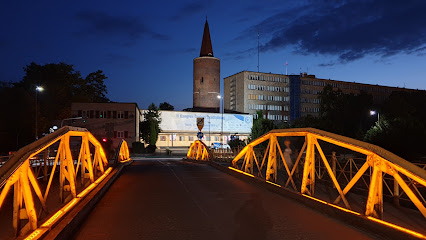
Rynek w Opolu
0.1 km
Experience the vibrant culture and history of Opole at Rynek w Opolu, the city's lively town square filled with charm and local delights.
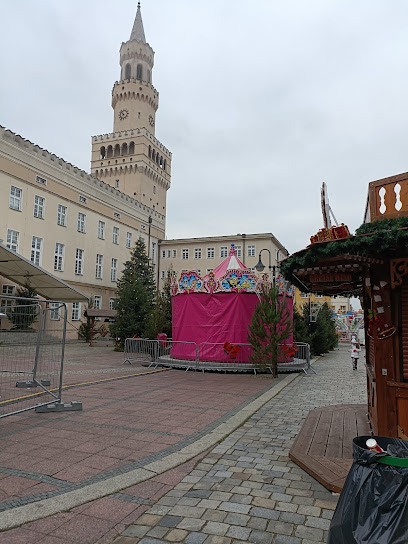
Pyszne Historie
0.2 km
Savor the flavors of Opole at Pyszne Historie, a delightful restaurant known for its breakfast, coffee, and pastries in a cozy setting.
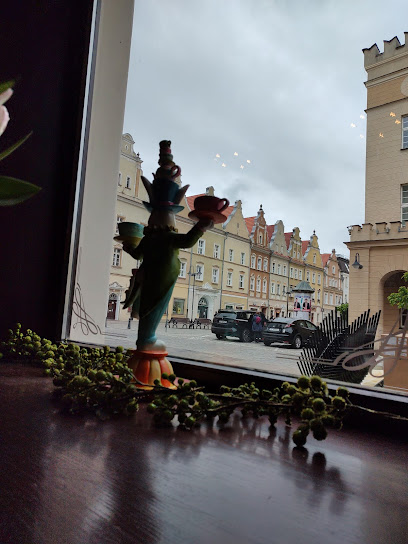
Brońmy Swego Opolskiego
0.2 km
Explore the historical charm of Brońmy Swego Opolskiego in Opole, where rich heritage meets vibrant local culture.
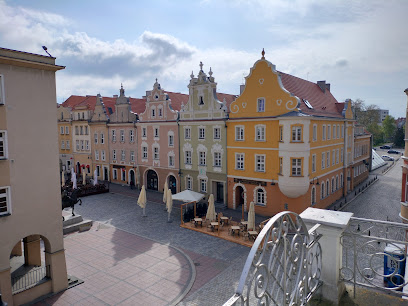
National Centre of Polish Song
0.2 km
Discover the vibrant cultural heart of Opole at the National Centre of Polish Song - a premier venue for live music and rich Polish heritage.
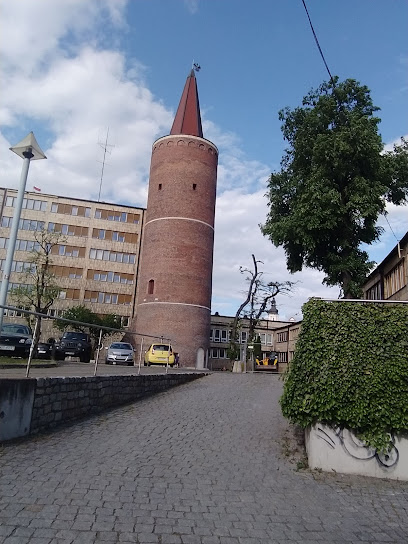
Monument fighters Polishness of the Opole
0.2 km
Explore the Monument to the Fighters for Polishness in Opole, a historical landmark honoring bravery and the rich Polish heritage.
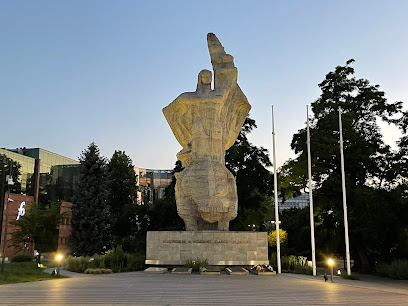
Zabytkowe Mury Obronne Opola
0.3 km
Discover the majestic Zabytkowe Mury Obronne in Opole, a historic landmark showcasing the city's rich heritage and breathtaking architecture.
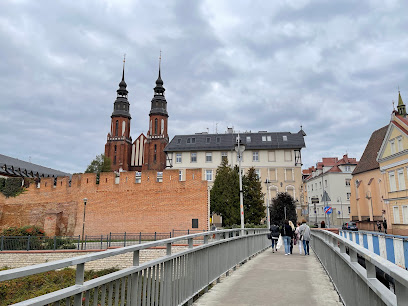
Zamek Górny w Opolu
0.4 km
Explore the rich history and stunning architecture of Zamek Górny, a must-visit historical landmark in Opole, Poland.
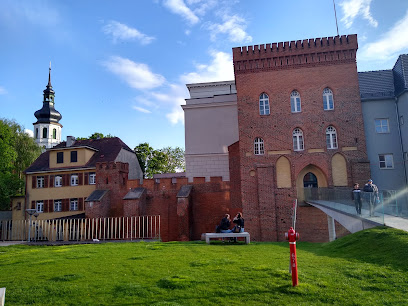
Niewidzialna Przestrzeń
0.7 km
Discover Niewidzialna Przestrzeń in Opole: A unique tourist attraction filled with art, culture, and immersive experiences that inspire creativity.
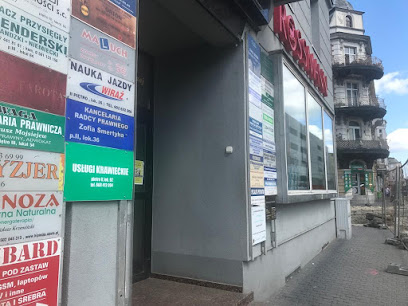
Most Pamięci Sybiraków
0.7 km
Discover the profound history at Most Pamięci Sybiraków, a bridge dedicated to the memory of Siberian exiles in the heart of Opole, Poland.
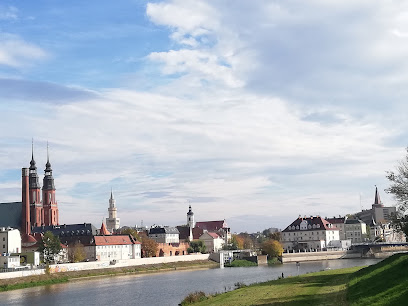
Nieczynna Stocznia Rzeczna
1.0 km
Explore the historical charm of Nieczynna Stocznia Rzeczna in Opole, where maritime history and serene river views come together.
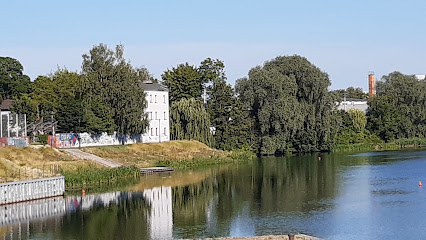
Jewish cemetery in Opole
1.5 km
Discover the Jewish Cemetery in Opole, a serene place of remembrance reflecting the rich history and cultural legacy of the Jewish community.
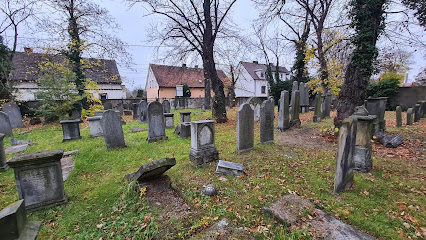
The palace and park complex in Pławniowice
50.4 km
Explore the breathtaking Palace and Park Complex in Pławniowice - a historical gem showcasing exquisite architecture and serene gardens.
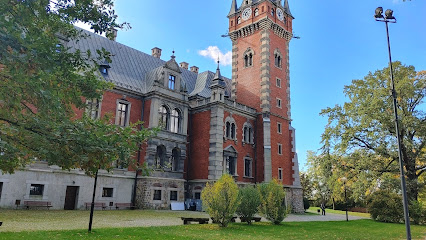
Dziedziniec pałacowy
50.4 km
Explore Dziedziniec Pałacowy in Pławniowice, a stunning historical landmark showcasing Poland's architectural beauty and serene gardens.
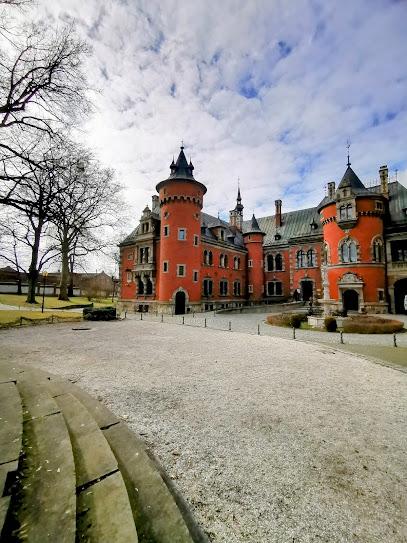
Park Linowy Gliwice LinaAdrena
61.9 km
Experience the thrill of treetop adventures and outdoor fun at Park Linowy Gliwice, the ultimate amusement park for nature lovers and thrill-seekers alike.
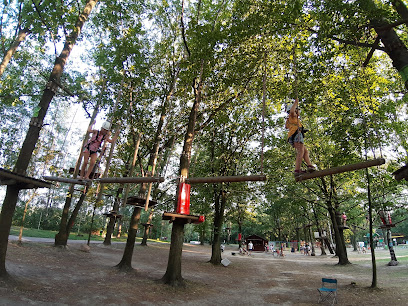
Unmissable attractions to see
Rynek Główny w Opolu
0.1 km
Explore the vibrant Rynek Główny in Opole, a cultural and historical hub filled with stunning architecture, delightful dining, and unique shopping experiences.
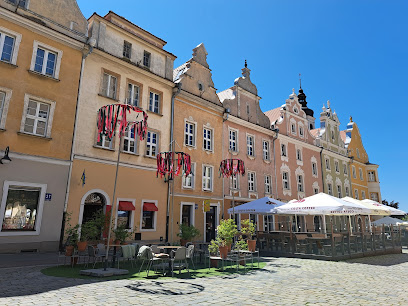
Piast Tower
0.1 km
Explore the Piast Tower, a historical treasure in Opole, offering panoramic views and a glimpse into Poland's rich heritage.
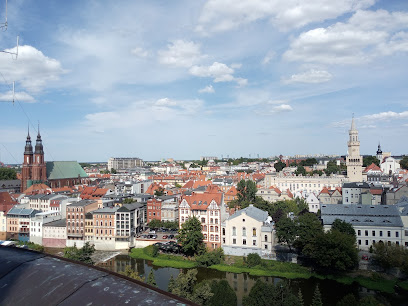
Zespół zabytkowy Rynku Opolskiego
0.1 km
Experience the rich history and vibrant culture of Opole at the stunning Zespół zabytkowy Rynku Opolskiego, a must-see tourist attraction.
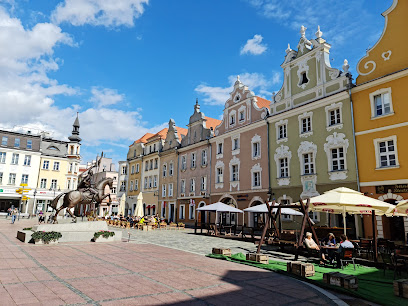
Śluza Miejska
0.1 km
Explore the tranquil beauty and historical significance of Śluza Miejska, a captivating lock on Młynówka Canal in Opole, Poland.
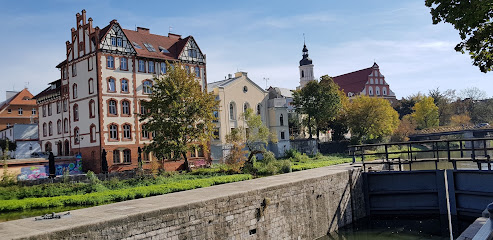
Mural piosenki polskiej
0.2 km
Explore Mural Piosenki Polskiej, a vibrant tribute to Polish music and art located in the artistic heart of Opole, Poland.

Mural poświęcony Irenie Sendler
0.2 km
Explore the Irena Sendler mural in Opole, a powerful tribute to humanity's courage during the Holocaust and a must-see for art and history enthusiasts.
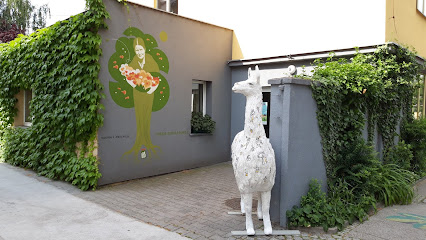
Multimedialna Fontanna na Stawie Zamkowym
0.2 km
Experience the magic of the Multimedialna Fontanna na Stawie Zamkowym in Opole, where water, light, and music create unforgettable moments.
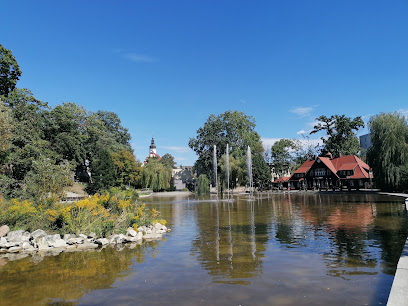
Most Groszowy
0.2 km
Discover the enchanting Most Groszowy Bridge in Opole, where stunning views and architectural beauty await every visitor.
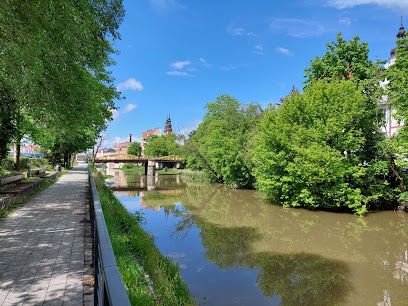
Museum of Polish Songs
0.2 km
Explore Poland's rich musical heritage at the Museum of Polish Songs in Opole, featuring interactive exhibits and captivating musical artifacts.
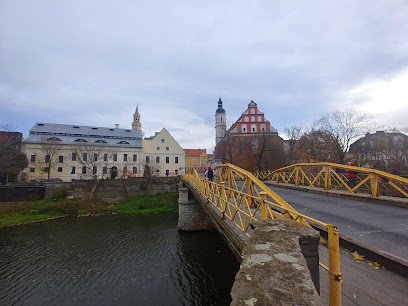
Świecące Serce Opola
0.2 km
Discover the vibrant heart of Opole at Świecące Serce Opola, a captivating destination blending culture, history, and local charm.
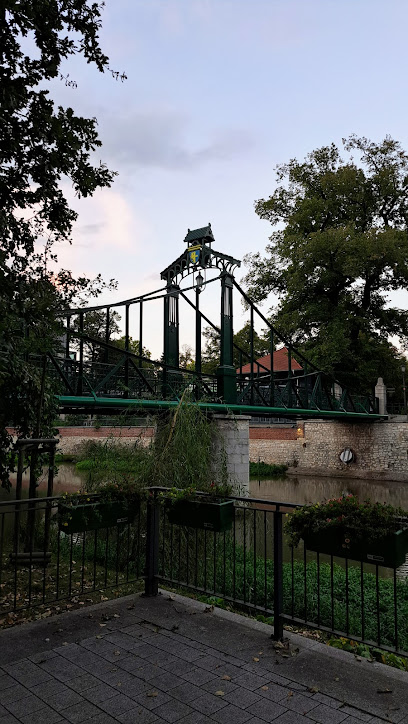
Tenement house
0.2 km
Discover the enchanting Tenement House in Opole, a museum that reveals the city's architectural beauty and rich cultural heritage.
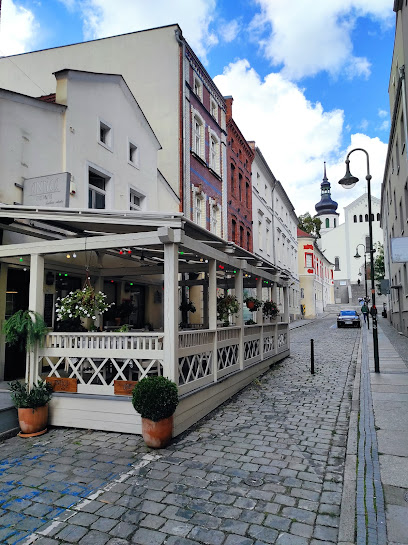
Dąb szypułkowy - pomnik przyrody
0.3 km
Explore the majestic Dąb Szypułkowy in Opole, a stunning natural monument that showcases the beauty and history of Poland's natural heritage.
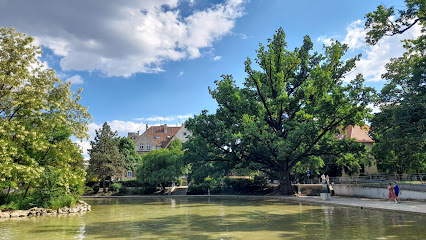
Museum of Opole Silesia
0.3 km
Explore the rich cultural heritage of Silesia at the Museum of Opole Silesia, where history comes alive through engaging exhibits and local art.
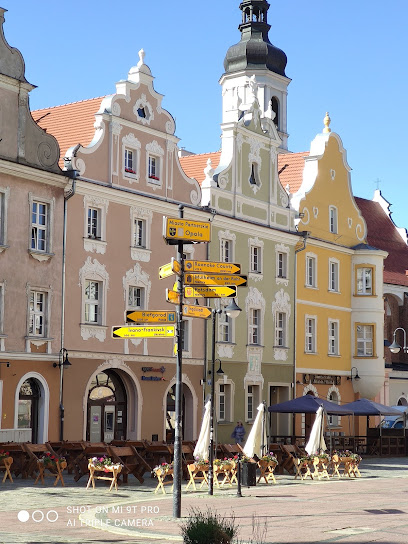
Śluza
0.3 km
Experience the beauty and history of Śluza in Opole, a captivating tourist attraction perfect for relaxation and exploration.
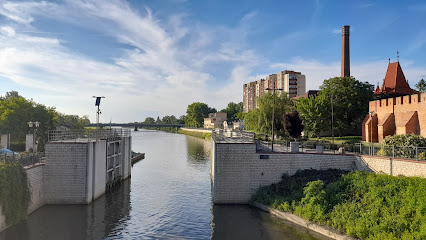
Baszta Artyleryjska
0.3 km
Explore the historic Baszta Artyleryjska in Opole, Poland, where medieval architecture meets breathtaking views and rich cultural heritage.
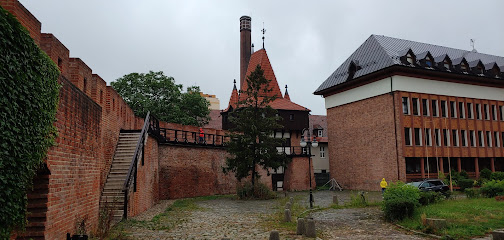
Essential places to dine
Tulsi
0.1 km
Discover authentic Indian flavors at Tulsi in Opole - where vibrant spices meet exceptional dining experiences.
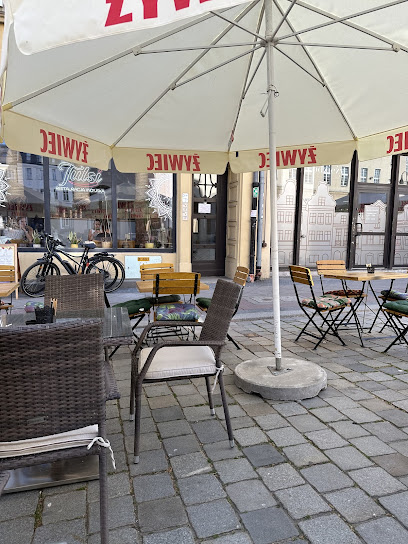
Pub Restauracja Maska- Laboratorium
0.1 km
Discover the perfect fusion of Polish and Italian cuisine at Pub Restauracja Maska - Laboratorium in Opole.
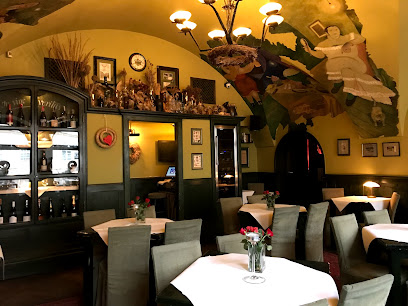
Ris Pub
0.1 km
Discover Ris Pub in Opole: where gourmet burgers meet an extensive selection of beers in a cozy pub atmosphere.
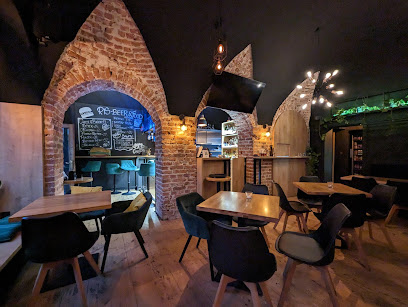
Biały Dzik
0.1 km
Experience the vibrant brewpub culture at Biały Dzik in Opole, where craft beers and delicious small plates await every visitor.
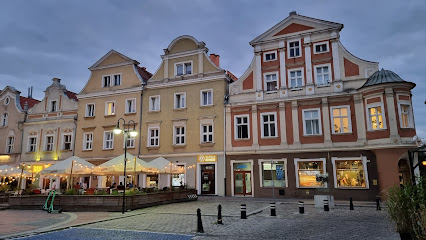
Wegeneracja
0.1 km
Discover Wegeneracja: Opole's premier vegan restaurant offering innovative plant-based dishes in a cozy atmosphere.
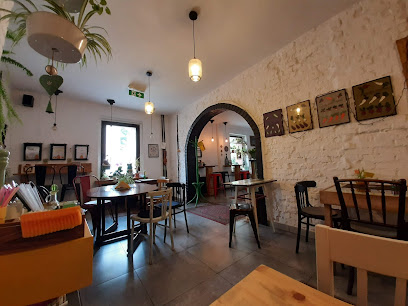
Restauracja Rzymskie Wakacje
0.1 km
Experience authentic Italian flavors at Restauracja Rzymskie Wakacje in Opole - where delicious pizzas and welcoming ambiance await you.
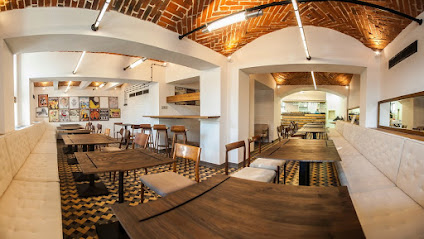
Zaułek Franciszkański Smak Bar
0.1 km
Experience authentic Polish cuisine at Zaułek Franciszkański Smak Bar – a must-visit dumpling restaurant in Opole offering delicious dishes at affordable prices.
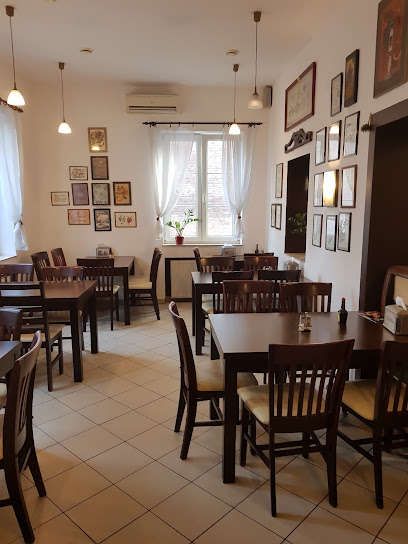
Qvevri Restauracja Gruzińska
0.1 km
Discover authentic Georgian cuisine at Qvevri Restauracja Gruzińska in Opole's vibrant Rynek square.

Dolce Far Niente
0.1 km
Discover the sweetness of life at Dolce Far Niente, Opole's charming cafeteria offering delectable chocolates and delightful desserts.
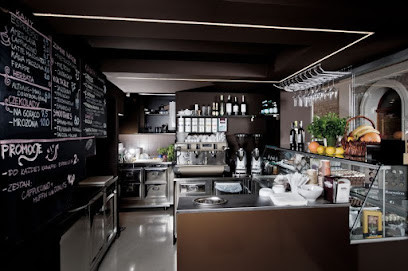
Wintydż
0.2 km
Discover Wintydż in Opole: A delightful brewpub offering craft beers, cocktails, and small plates in a cozy dog-friendly atmosphere.
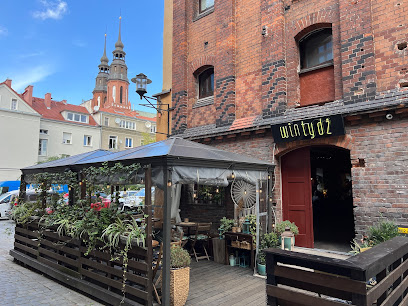
Mąka i Wół
0.2 km
Discover authentic Polish cuisine at Mąka i Wół in Opole—where tradition meets modernity in every delicious dish.
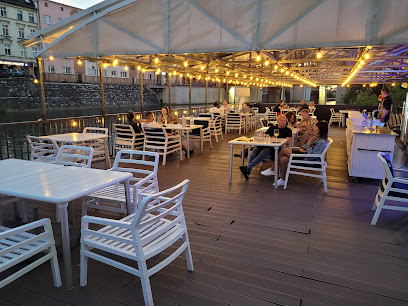
Fabuła
0.2 km
Discover Fabuła in Opole: A burger lover's paradise offering delicious fast food in a vibrant setting.
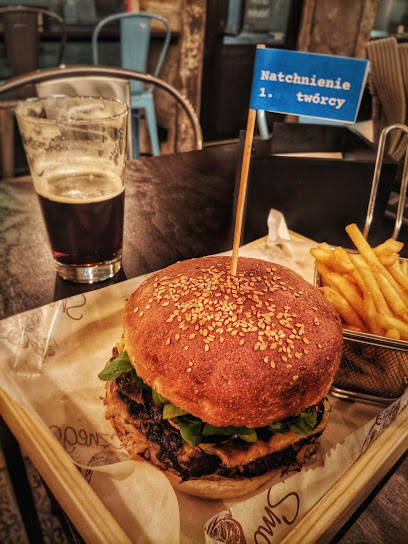
Grabówka
0.2 km
Discover Grabówka in Opole – where delectable crêpes meet cozy dining in an inviting atmosphere.
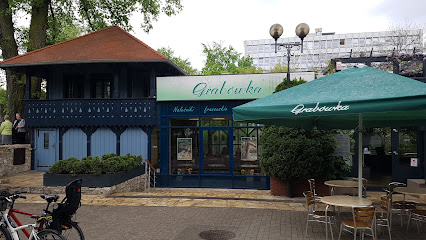
Sapore
0.2 km
Experience authentic Italian cuisine at Sapore in Opole – where every pizza tells a story of tradition and taste.

Starówka Kuchnia Polska
0.2 km
Experience authentic Polish cuisine at Starówka Kuchnia Polska in Opole – where tradition meets flavor in every dish.
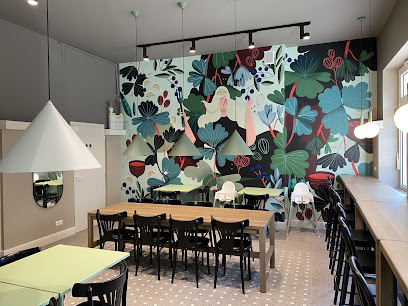
Markets, malls and hidden boutiques
Centrum Odziezy Secondhand
0.1 km
Explore the eclectic treasures of Centrum Odziezy Secondhand in Opole, where vintage charm meets sustainable shopping.
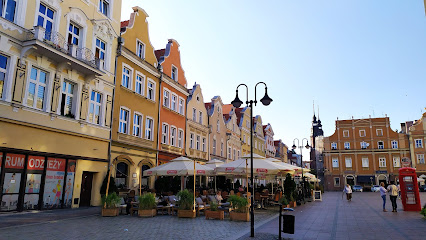
Galeria Biały Kruk
0.1 km
Explore Galeria Biały Kruk in Opole for unique handcrafted art and local crafts that capture the essence of Polish culture and creativity.

Wytwórnia Pączków
0.2 km
Discover Opole's Wytwórnia Pączków, a delightful donut shop offering a wide variety of fresh pastries in a charming atmosphere.
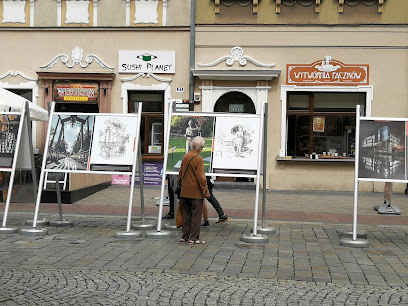
Sweet Factory Store
0.2 km
Explore a confectionery wonderland at Sweet Factory Store in Opole, where delightful sweets and artisanal treats await every visitor.

Lilou
0.2 km
Discover exquisite jewelry and personalized craftsmanship at Lilou, the premier jewelry store in Opole, Poland.
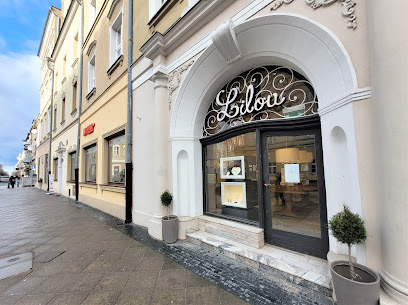
J.S.A Opole
0.2 km
Explore the latest in women's fashion at J.S.A Opole – where style meets elegance in the heart of Opole.

Czekoladowe Niebo
0.2 km
Discover Czekoladowe Niebo in Opole, where exquisite chocolates and delightful ice creams create a sweet retreat for every traveler.

Sopelek Krakowska
0.2 km
Experience the sweet side of Opole at Sopelek Krakowska, where artisanal ice cream and delightful desserts await every visitor.
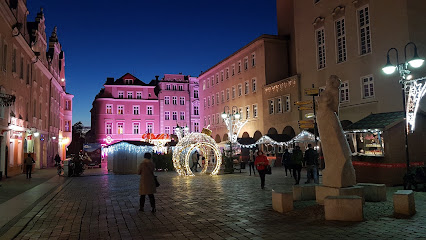
ArtBarbara - Opole
0.2 km
Explore your creativity at ArtBarbara, Opole's premier art supply store, offering everything from paints to workshops for all skill levels.

Biotika concept store
0.2 km
Explore Biotika in Opole for a delightful selection of organic toiletries that reflect sustainability and quality, perfect for any conscious traveler.

ReUżytkownia Opole
0.2 km
Explore ReUżytkownia Opole for unique second-hand treasures and sustainable shopping in the heart of Poland.
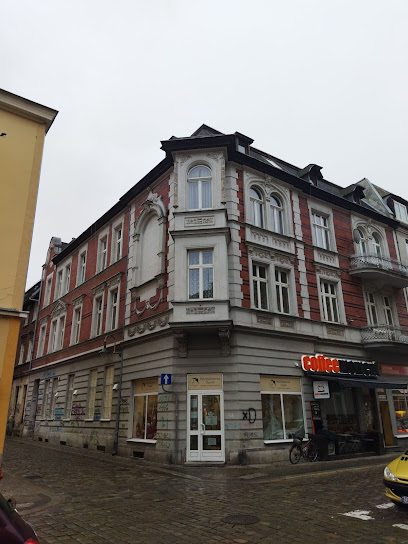
Sklep Dla Plastykow
0.2 km
Explore Sklep Dla Plastykow in Opole, your ultimate destination for art supplies and creative inspiration in a welcoming environment.
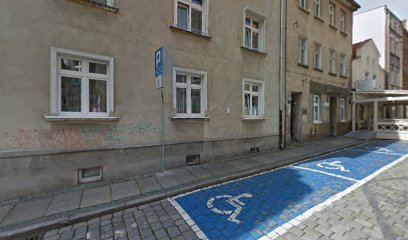
Marco
0.2 km
Explore Marco in Opole for a unique shopping experience featuring trendy clothing and exceptional customer service.
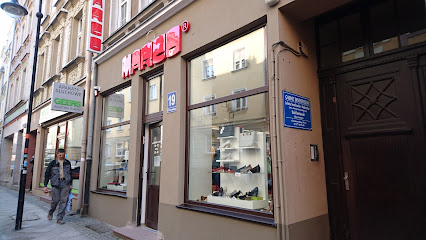
Bella Donna
0.2 km
Explore Bella Donna, a captivating boutique in Opole offering unique women's clothing that embraces local fashion and elegance.
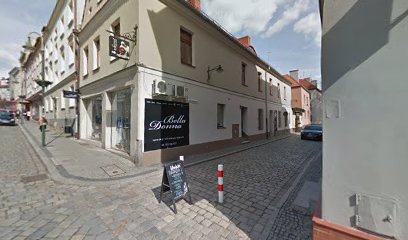
Folk Craft Gallery Opole
0.2 km
Discover the beauty of Polish folk artistry at Folk Craft Gallery Opole, a treasure trove of exquisite chinaware and handcrafted items.
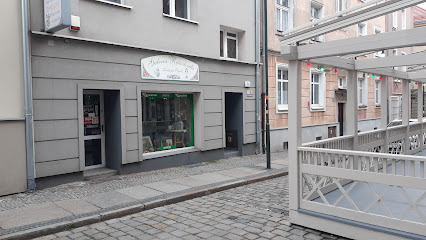
Essential bars & hidden hideouts
Highlander
0.1 km
Experience the heart of Opole at Highlander, a brewpub offering exquisite craft beers and authentic Polish cuisine in a cozy setting.
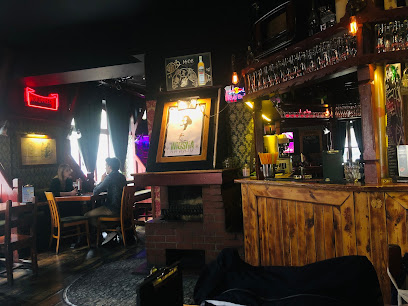
Ministerstwo Śledzia i Wódki
0.1 km
Discover the flavors of Poland at Ministerstwo Śledzia i Wódki, Opole's premier gastropub for herring and vodka lovers.
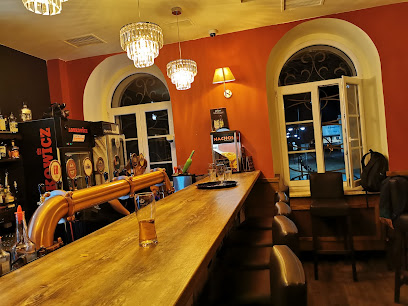
Pub Ostrówek
0.2 km
Experience the best of Polish brewing and delicious pizza at Pub Ostrówek in Opole, where every visit is a culinary delight.
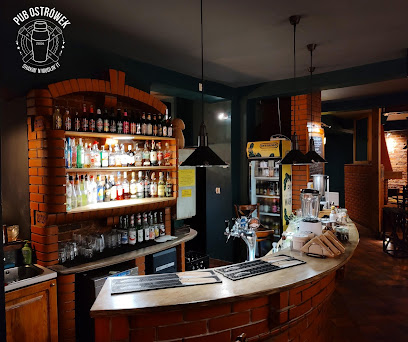
Pijalnia Wódki i Piwa Opole
0.2 km
Experience the essence of Opole at Pijalnia Wódki i Piwa, where local brews meet authentic Polish flavors in a cozy brewpub atmosphere.
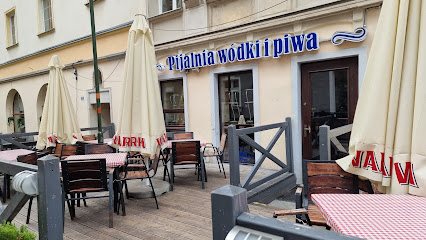
INCOGNITO BAR
0.2 km
Experience the vibrant nightlife of Opole at Incognito Bar, where expertly crafted cocktails and a cozy ambiance await every visitor.

Melon Pub
0.2 km
Experience the vibrant nightlife of Opole at Melon Pub, where drinks flow and good times abound in a lively atmosphere.
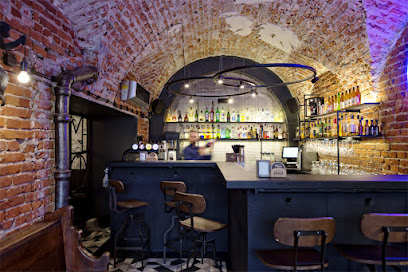
Kill Bill Pub
0.2 km
Discover the vibrant atmosphere and unique craft beers at Kill Bill Pub in Opole, a must-visit brewpub for every traveler.
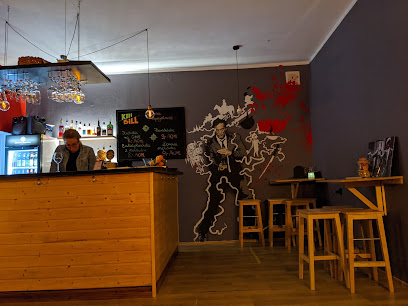
Piwiarnia Staromiejska
0.2 km
Discover the heart of Opole's nightlife at Piwiarnia Staromiejska, your go-to pub for local brews and vibrant atmosphere.
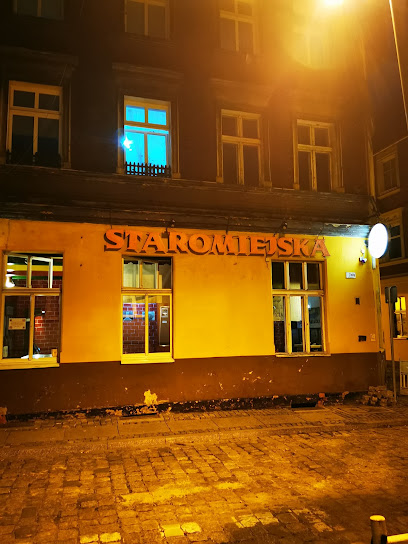
SEPIA
0.3 km
Experience the heart of Opole's brewing culture at SEPIA, where craft beers meet local flavors in a cozy atmosphere.
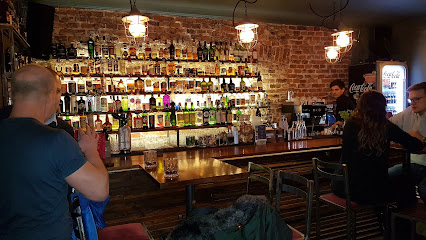
Reset raciborski
0.3 km
Discover the lively heart of Opole at Reset Raciborski, where great drinks and live music create unforgettable memories.
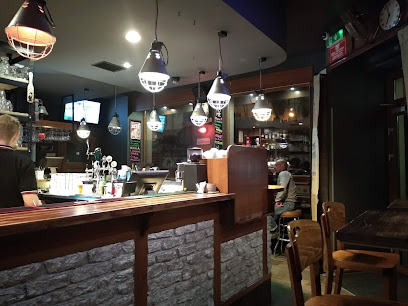
Awangarda Pub
0.9 km
Experience the vibrant atmosphere of Awangarda Pub in Opole, where great drinks and friendly service await in a cozy setting.
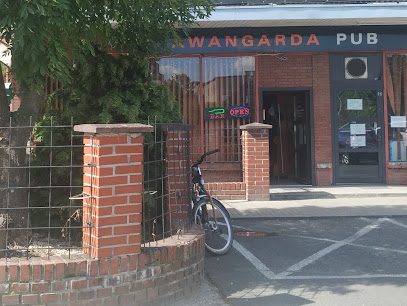
PUB na Rampie
2.2 km
Discover the lively atmosphere of PUB na Rampie in Opole, where great drinks and friendly vibes create unforgettable nights.
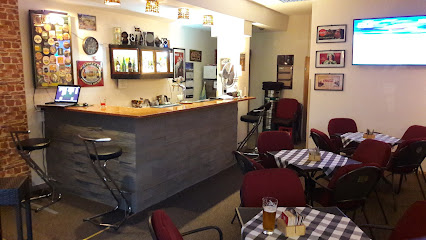
Pub Wiking
3.0 km
Experience the vibrant atmosphere of Pub Wiking in Opole, where local culture meets delightful drinks in a cozy setting.
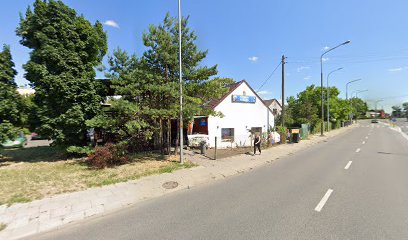
Bar U Kuby
4.3 km
Discover the vibrant music scene at Bar U Kuby, Opole's premier live music bar, offering a cozy ambiance and unforgettable performances.
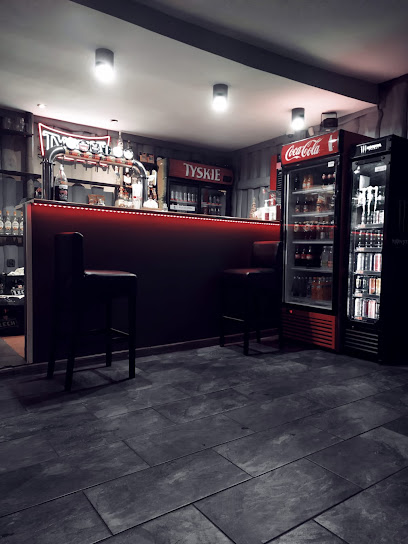
Rezidence u Jezera
63.8 km
Experience the culinary delights of Rezidence u Jezera, where local flavors meet stunning natural landscapes in Písečná.
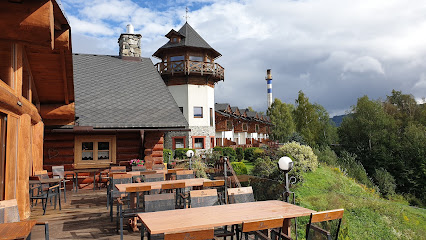
Nightclubs & after hour spots
Aqarium Music Club
0.1 km
Experience the electrifying nightlife at Aqarium Music Club in Opole, where the dance floor awaits with vibrant beats and an unforgettable atmosphere.

Club Cina
1.0 km
Immerse yourself in the electrifying atmosphere of Club Cina, Opole's premier disco club, where music and dance unite for an unforgettable nightlife experience.

Top-Secret Klub Nocny
1.1 km
Dive into Opole's vibrant nightlife at Top-Secret Klub Nocny, where the rhythm never stops and unforgettable memories await.

Pirania Bar
1.8 km
Experience the charm of Pirania Bar in Opole, where cozy ambiance meets delightful drinks for an unforgettable lounge experience.

Gentlemen,s Night Club
2.0 km
Discover the electrifying atmosphere of Gentlemen's Night Club in Opole, where nightlife comes alive with music, dancing, and unforgettable experiences.

Mango Music Club
2.1 km
Experience the vibrant nightlife of Opole at Mango Music Club, a premier venue for live music, dancing, and unforgettable nights.

Kacper Polak Sports & Entertainment
2.1 km
Discover the pulse of Opole’s nightlife at Kacper Polak Sports & Entertainment, where music and dance come alive in a vibrant disco atmosphere.
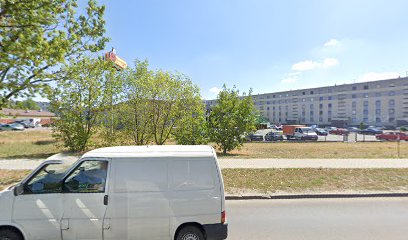
Anmas Big Ben Music Club
2.1 km
Experience the vibrant nightlife of Opole at Anmas Big Ben Music Club, where electrifying performances and dancing await!

Aisha Night Club
2.7 km
Experience the vibrant nightlife at Aisha Night Club in Opole, where music, dance, and unforgettable memories await you every night.

Black cat video club
2.8 km
Experience the vibrant nightlife at Black Cat Video Club in Opole, where electrifying music and a lively atmosphere await to enchant every visitor.

Night Club Gliwice
65.7 km
Unleash your inner party animal at Night Club Gliwice, where the music is loud, the energy is high, and unforgettable memories are made.

Obsession Gliwice
67.0 km
Dive into the heart of Gliwice's nightlife at Obsession Gliwice, where live music, vibrant atmosphere, and unforgettable memories await.
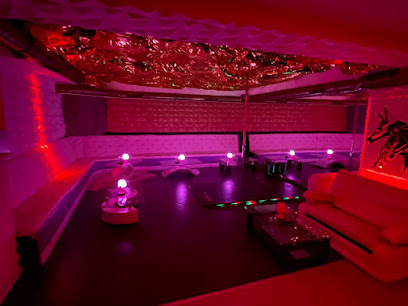
80 Club Music Club
67.0 km
Dance the night away at Gliwice's vibrant 80 Club, where great music and craft brews create unforgettable nightlife experiences.

Koniec Szpuli
67.1 km
Discover the vibrant atmosphere of Koniec Szpuli in Gliwice, a cozy lounge perfect for unwinding with friends over drinks.
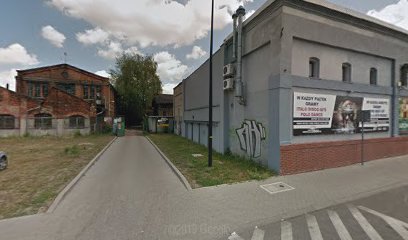
Mardi Gras
67.1 km
Discover the vibrant nightlife at Mardi Gras Club, Gliwice's ultimate destination for dance, music, and unforgettable memories.




